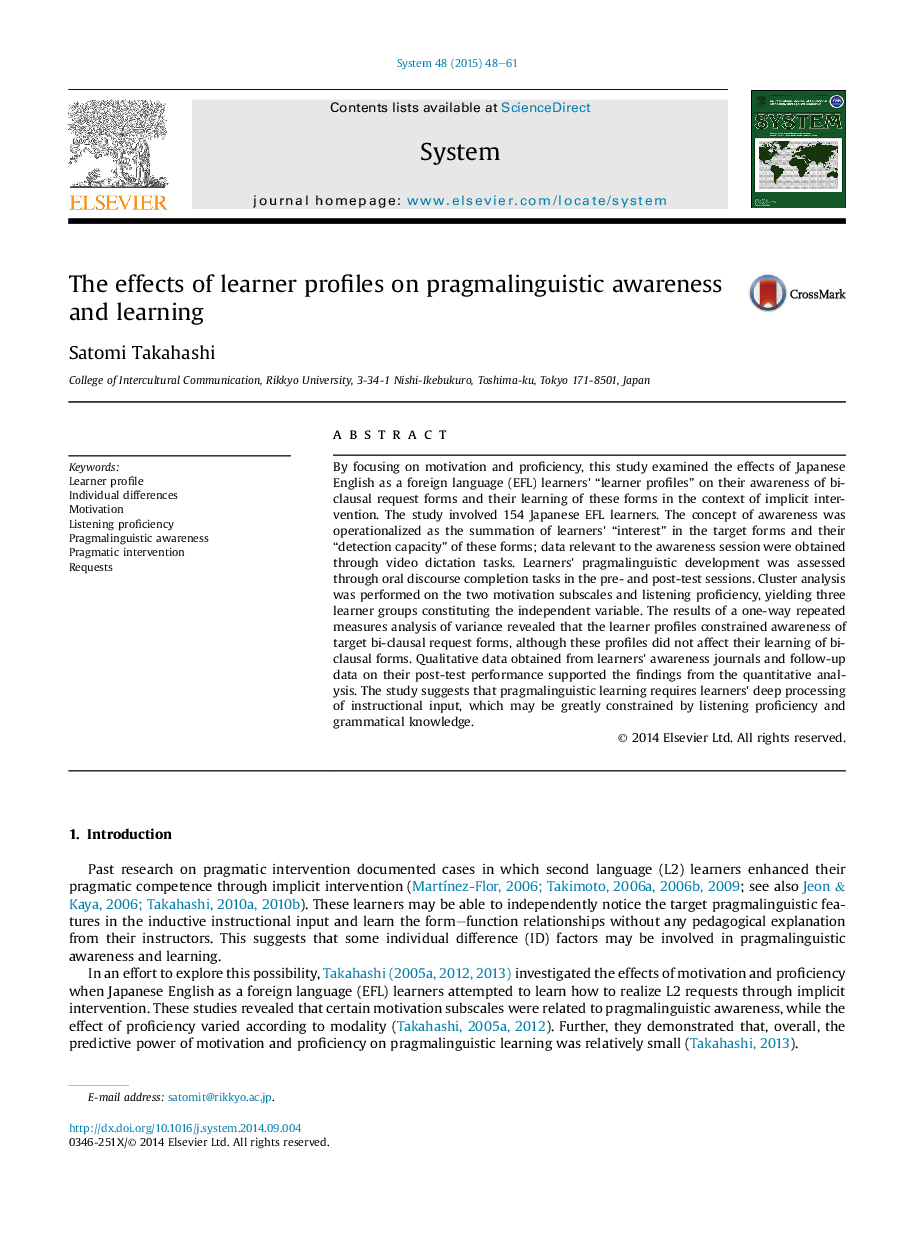| Article ID | Journal | Published Year | Pages | File Type |
|---|---|---|---|---|
| 373174 | System | 2015 | 14 Pages |
By focusing on motivation and proficiency, this study examined the effects of Japanese English as a foreign language (EFL) learners' “learner profiles” on their awareness of bi-clausal request forms and their learning of these forms in the context of implicit intervention. The study involved 154 Japanese EFL learners. The concept of awareness was operationalized as the summation of learners' “interest” in the target forms and their “detection capacity” of these forms; data relevant to the awareness session were obtained through video dictation tasks. Learners' pragmalinguistic development was assessed through oral discourse completion tasks in the pre- and post-test sessions. Cluster analysis was performed on the two motivation subscales and listening proficiency, yielding three learner groups constituting the independent variable. The results of a one-way repeated measures analysis of variance revealed that the learner profiles constrained awareness of target bi-clausal request forms, although these profiles did not affect their learning of bi-clausal forms. Qualitative data obtained from learners' awareness journals and follow-up data on their post-test performance supported the findings from the quantitative analysis. The study suggests that pragmalinguistic learning requires learners' deep processing of instructional input, which may be greatly constrained by listening proficiency and grammatical knowledge.
